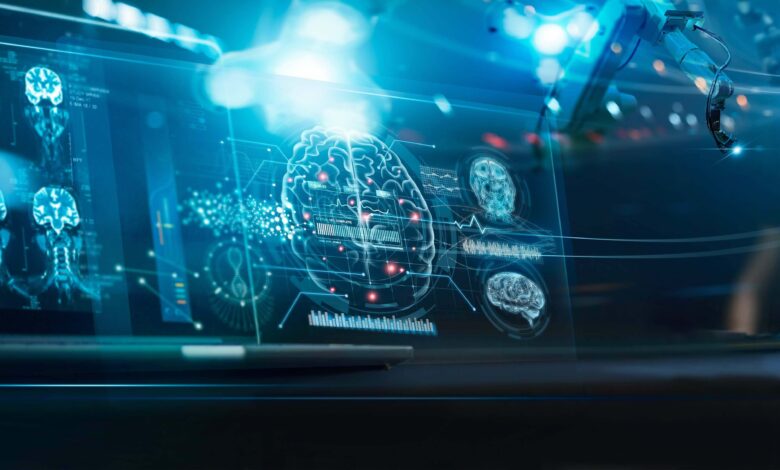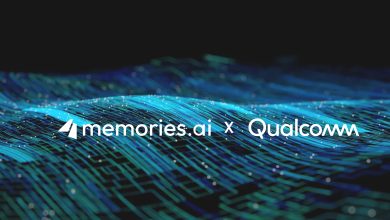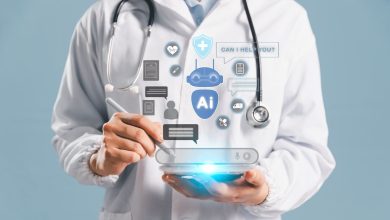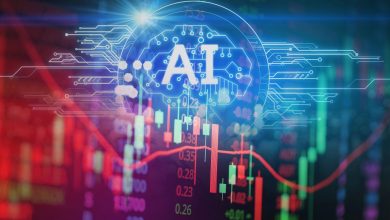
Artificial intelligence (AI) has wide-ranging applications spanning nearly all industries, including healthcare. In the healthcare sector, AI can help enhance performance, improve agility, and scale operations. When healthcare organizations invest in AI tools that seamlessly integrate with existing IT stacks, they can expect to see improvements to productivity, automation, and overall capabilities, as well as gains in efficiency, customer satisfaction, and job creation while simultaneously seeing reductions in cost.
Preparing for AI
Healthcare in particular is a highly regulated industry, so before implementing AI tools, consider several key questions:
- Take strategic alignment into account. Have you identified the specific business goals you’re hoping AI can help with? Is the exec team in agreement on AI’s strategic value?
- Successful AI implementation hinges on thoughtful data management. Does your organization have enough data for the AI applications you want to put in place? Is that data clean and relevant? Are there robust governance and privacy frameworks in place to ensure compliance and security?
- Is your technological infrastructure sound? Can it scale to support AI tools and solutions? Can your existing systems seamlessly integrate with AI?
- Is your team ready for this change? Have you equipped your people with the skills they need to manage AI additions? As AI continues to evolve, do you have a plan in place to upskill your team when needed?
- Have you planned out your change management strategy? Are stakeholders bought in? Are you ready for both cultural and operational changes as a result of AI implementation?
- Prioritize risk management. Have you identified potential AI adoption-related risks and determined how best to handle them? Do you have an established system to continuously monitor the ethics and compliance of your AI tools?
The answers to these questions will help inform your company’s development of thoughtful strategies and effective implementation of AI projects, maximizing the benefits while minimizing operational challenges.
The benefits of AI in healthcare
Navigating AI’s complexities can seem complicated, but the impact within the healthcare industry has already been significant enough to be notable. In fact, according to recent research, 90% of healthcare executives reported that their AI investments have already seen a positive return on investment. Technology investments in healthcare historically have a long lead time before they generate meaningful results, especially positive ones, but when tech investments are done right, healthcare organizations can expect to see several benefits:
- AI can help streamline workflows by automating tedious tasks. This strategic approach allows employees to refocus their efforts on higher-value, more innovative work, resulting in a more dynamic and flexible organizational structure that can quickly respond as needs change.
- Organizations can scale their operations more efficiently with AI, maximizing cost savings and ROI.
- Since organizations can tailor AI solutions for specific needs, the outcomes are more effective than the results of generic solutions.
- Proactive risk management enables teams to address challenges before they become bigger, more widespread issues that will be more complex to tackle. This speed ultimately curtails operational disruptions and can also streamline implementation.
- A focus on continuous improvement requires consistent audits and updates to ensure your organization is keeping up with cutting-edge advancements while staying competitive in the overall environment.
Implementing comprehensive AI solutions will keep your healthcare organization on the right track, driving compliant, future-proofed success.
Recent LLM-native OCR Advancements
AI-powered document extraction can also dramatically improve healthcare operations. This solution creates a precise, robust, relevant knowledge data layer. The quality of recommendations and responses directly results from the accuracy of the data foundation, and AI can help ensure that the data layer is accurate, structured and comprehensive. AI-powered document extraction is superior to legacy Optical Character Recognition (OCR) systems because AI has a more holistic understanding of the documents it’s reading, taking into account the context and connections between text and visual elements.
Recent advancements in LLM-powered OCR technology have significantly enhanced document processing capabilities. Here’s a summary of key developments and offerings:
1. Accuracy and Multilingual Support:
- LLM-Powered OCR has achieved higher accuracy rates, reaching up to 99.56% for printed text and 80-85% for clear handwritten text, with support for over 80 languages.
- This improvement is crucial for handling diverse document types and languages, making it more versatile for global applications.
2. Mistral OCR:
- Mistral AI launched Mistral OCR, an API-first tool designed to handle complex documents, including advanced layouts and mathematical expressions.
- It converts PDFs and images into structured text, often in Markdown, making them ready for generative AI models.
- Mistral OCR is positioned as a key tool for industries with heavy document loads, such as healthcare, BFSI and high-tech sectors.
3. LlamaExtract from LlamaIndex:
- LlamaIndex is an open-source framework that simplifies integrating LLMs with diverse data sources, including documents and APIs.
- It provides tools for data loading, organizing, and searching, allowing users to interact with data using natural language.
- LlamaIndex is useful for applications like document understanding and data extraction, leveraging its broad compatibility with over 160 data sources.
4. Gemini 2.5 Pro:
- Gemini 2.5 Pro is a state-of-the-art AI model from Google, known for its enhanced reasoning capabilities and performance on complex tasks.
- While not specifically an OCR tool, Gemini 2.5 Pro’s advanced reasoning can be integrated with OCR outputs to enhance decision-making and analysis in document processing workflows.
- It is available in Google AI Studio and will soon be integrated into Vertex AI.
How LLM and OCR Can help in Healthcare
LLM-powered OCR can meaningfully contribute to advancements in diagnosis, drug discovery, and personalized medicine by enhancing data extraction and analysis processes. Here’s how:
Advancements in Diagnosis
- Improved Data Extraction: LLM-powered OCR can accurately extract information from handwritten medical records, prescriptions, and other documents, reducing errors and increasing efficiency in data processing. This helps in creating comprehensive patient profiles, which are crucial for accurate diagnoses.
- Enhanced Diagnostic Tools: By integrating LLMs with OCR, systems can analyze extracted data to provide insights that aid in diagnosing complex medical conditions. For instance, LLMs can process radiology reports and suggest follow-up tests or treatments.
- Multimodal Analysis: Multimodal LLMs can combine text data extracted via OCR with medical images to improve diagnostic accuracy. This integration helps in interpreting radiology reports and other medical imaging data more effectively8.
Advancements in Drug Discovery
- Data Analysis: LLMs can analyze biomedical literature and clinical trial data extracted through OCR, identifying potential drug candidates and predicting biological activities. This accelerates the drug discovery process by automating tasks like data mining and hypothesis generation.
- Drug Repositioning: By analyzing existing drugs and their effects across diffferent conditions, LLMs can recommend new therapeutic applications for known compounds and improve drug repositioning efforts.
- Integration with AI Platforms: LLMs can be integrated with platforms like NVIDIA’s BioNeMo to leverage AI in drug discovery, optimizing tasks such as molecular structure prediction and drug efficacy evaluation.
Advancements in Personalized Medicine
- Personalized Treatment Plans: LLMs can analyze patient data extracted via OCR, including genetic profiles and medical histories, to create tailored treatment plans. This involves identifying personalized therapies based on an individual’s patient characteristics.
- Genomic Data Analysis: By processing genomic data, LLMs can help identify genetic variations that influence disease susceptibility or treatment response, enabling more precise interventions.
- Integration of Diverse Data Sources: LLMs can integrate data from various sources, such as EHRs, medical imaging, and wearable devices, to provide holistic insights for personalized medicine.
LLM-powered OCR enhances the efficiency and accuracy of data extraction and analysis, both of which are important for advancements in diagnosis, drug discovery, and personalized medicine. By automating data processing and providing actionable insights, these technologies support more effective and personalized healthcare solutions.
From intelligent document extraction to streamlining repetitive processes to improving ROI, implementing AI in healthcare has the potential for industry transformation As technology advances further, these intelligent systems will become invaluable partners for medical professionals, making healthcare more precise and efficient. The future of healthcare hinges on enhancing human expertise through powerful, impactful technologies like AI.




